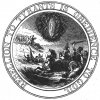Seeking_Thy_Kingdom
Puritan Board Sophomore
I recently learned that Benjamin Franklin had a seal that read “Rebellion Against Tyrants is Obedience to God” and displayed Moses and a pillar of fire. I ashamedly admit I do not know much of American history, especially the period of the Revolutionary War. Since I am locked down with nowhere to go now would be a good time to learn about that period, and specifically the theology of the Founders. Any recommend reading?


